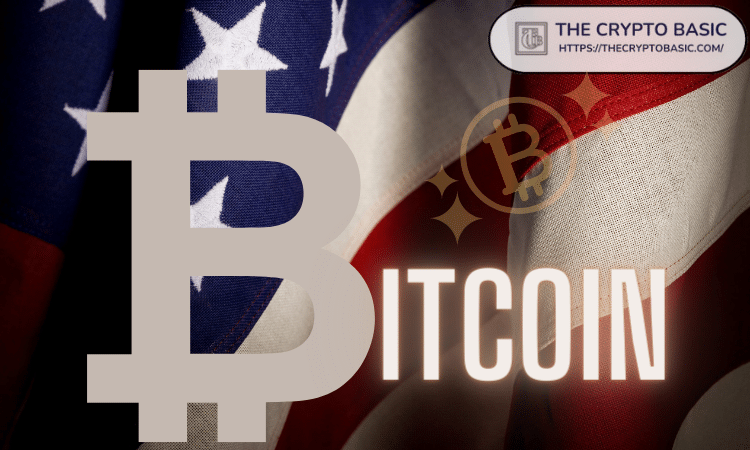The U.S. government continues to hold one of the world’s largest Bitcoin stockpiles, according to Arkham Intelligence, which confirmed more than 198,000 BTC remains under federal control.
The clarification comes after a wave of alarm swept through the crypto community following a narrow disclosure from the U.S. Marshals Service.
The confusion began when a Freedom of Information Act (FOIA) request revealed that the U.S. Marshals Service currently holds around 28,988 BTC, worth $3.44 billion. The figure appeared to confirm fears that the government had sold off the majority of its Bitcoin holdings. But blockchain data tells a different story.
Arkham Tracks the Real Totals
Arkham, which tracks crypto assets across blockchains and wallets, stepped in to verify the actual figures. Its analysis shows that various federal agencies, including the FBI, IRS, DEA, and Department of Justice, hold a combined 198,012 BTC, valued at roughly $23.5 billion.
None of the assets have moved in the past four months, indicating the government remains firmly invested in its digital holdings.
Senator Lummis Reaction
Senator Cynthia Lummis, a staunch advocate for Bitcoin, reacted swiftly to the initial reports. Lummis criticized what she believed was a major “strategic blunder”.
In a post on X, she warned that liquidating most of the government’s Bitcoin would undermine U.S. leadership in the digital asset space. But after Arkham released its findings, her concerns appeared to stem from incomplete data.
Criminal Seizures Fuel Government Bitcoin Stash
Many of these government-held Bitcoin tokens originate from major criminal investigations. In the largest seizure to date, authorities recovered 114,599 BTC, worth over $13 billion, from Ilya Lichtenstein and Heather Morgan, who were charged in connection with the 2016 Bitfinex hack.
Authorities also secured 94,643 BTC from two Silk Road-related operations. This included 51,680 BTC from James Zhong and 69,370 BTC from an individual believed to have hacked the dark web marketplace.
In addition to these headline-making cases, the government seized Bitcoin worth millions of dollars from other investigations. For instance, Alameda Research, a key player in the FTX collapse, gave up more than $81 million in BTC held on Binance to the U.S. government.
Authorities also confiscated $79 million in BTC from Sergei Potapenko and Ivan Turogin. They were the Estonian operators behind the HashFlare mining scam.
$81.25M of US Government BTC was seized from Alameda Research accounts on Binance & Binance US in 2023 after the FTX collapse.
The BTC is held in these addresses: bc1qhd5nnswnanxxpplnc8gkemclyf5dyrtue0k2p8
bc1q78tvepqk73264xr3rjuta2vgx5r755xmamlkwh pic.twitter.com/MvFAr46C80— Arkham (@arkham) July 23, 2025
Sales Tracked Through Coinbase Prime
Arkham’s data also supports previous reports that the government uses Coinbase Prime as a platform to liquidate portions of its crypto holdings.
In the past two years, the U.S. sold 9,861 BTC in March 2023. This was followed by two separate transactions of 10,000 BTC each in August and December 2024. A smaller sale of 58.7 BTC took place in July 2024, involving funds seized from convicted dark web drug dealer Ryan Farace.
These transactions confirm that the government has been strategically selling off portions of its crypto. However, Arkham maintains that the remaining reserves are still sizable. This is especially true when considering the assets recovered from Bitfinex and Silk Road-related cases alone.
Transparency Remains a Challenge
The confusion over the actual reserve size exposes a larger problem: the lack of centralized reporting. Each federal agency manages its own crypto assets and disclosure policies, making it difficult to get a clear, unified picture of total holdings.
The FOIA request that triggered the uproar came from independent journalist “Lola L33tz”. She has since filed a follow-up inquiry to determine whether Coinbase Prime is formally involved in the management or sale of government-held cryptocurrency assets.
Arkham’s findings may have calmed immediate fears. However, the controversy highlights how fragmented reporting can mislead the public and even lawmakers. Without a centralized database or standard disclosure practices, uncertainty about government-held cryptocurrency is likely to persist.
DisClamier: This content is informational and should not be considered financial advice. The views expressed in this article may include the author's personal opinions and do not reflect The Crypto Basic opinion. Readers are encouraged to do thorough research before making any investment decisions. The Crypto Basic is not responsible for any financial losses.



